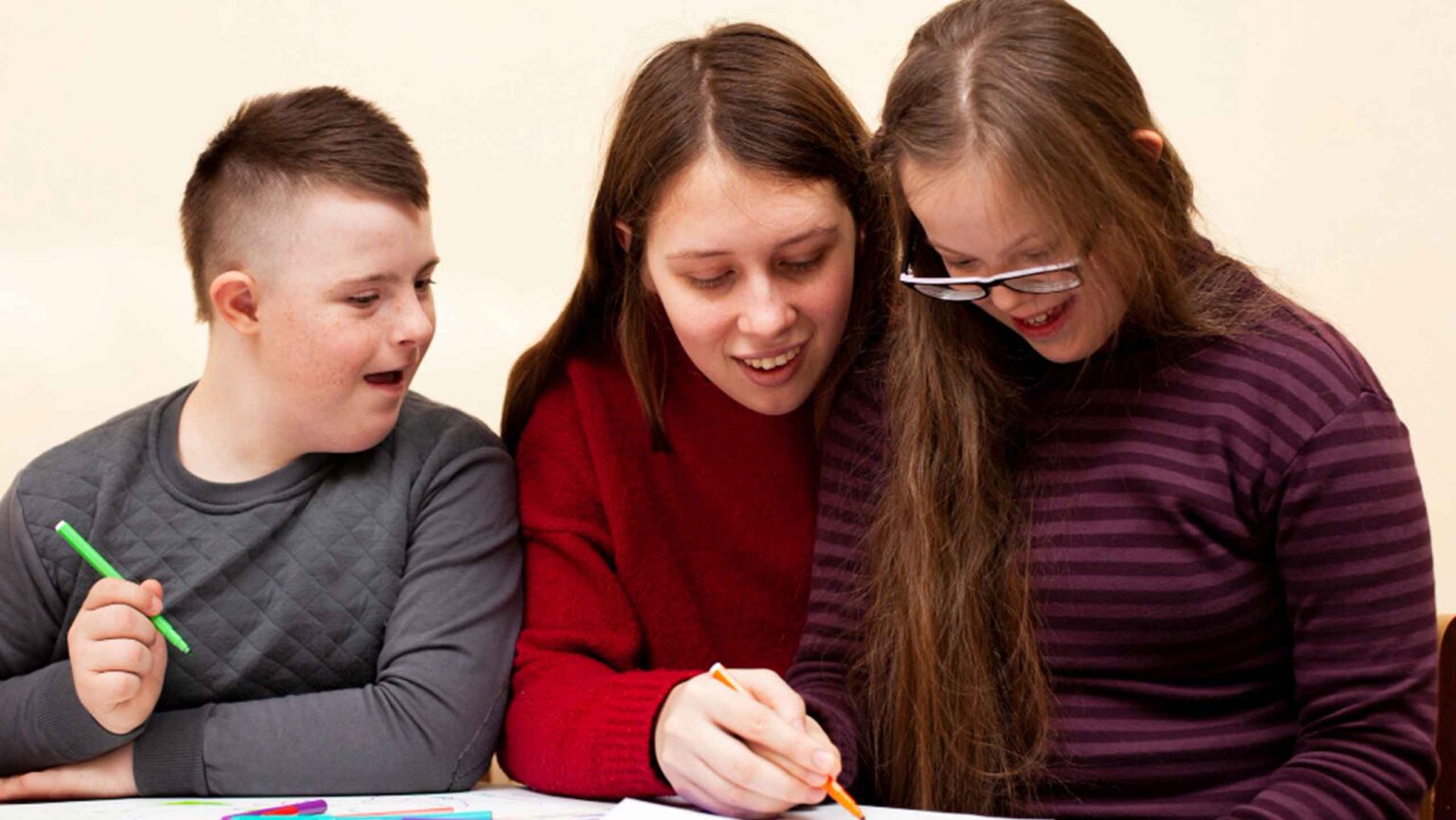Choosing the right special education teacher for your child is crucial. A special education teacher plays a significant role in your child’s development and learning experience!
Asking the right questions can help you understand if a teacher is a good fit for your child’s needs, especially if it concerns students with disabilities, and see what the proper individualized education plan can potentially be.
This article provides a comprehensive list of interview questions to ask special education teachers, helping you make a decision that works for you.
Table of Contents
- Understanding Their Background and Experience
- Teaching Methods and Strategies Interview Questions for Special Education Teachers
- Classroom Management Questions for Special Education Teachers
- Communication and Collaboration Interview Questions
- Assessing Student Progress
- Interview Questions About Handling Challenges
- Personal Philosophy and Approach
- Questions About Specific Needs
- Bottom Line
Understanding Their Background and Experience
One of the first things to consider is the teacher’s background and experience, for the sake of general education. At the end of the day you want these special ed teachers to help students, which is why these questions will help you learn more about their qualifications and expertise in special education.
- What is your educational background?
- Understanding the teacher’s academic qualifications can give you an idea of their knowledge in the field of special education.
- How long have you been a special education teacher?
- Experience is crucial in handling the unique needs of special education students. That says plenty in terms of skilled special education teachers.
- What certifications do you have?
- Special education teachers often hold specific certifications that qualify them to work with students with various disabilities.
- Have you received any specialized training?
- Additional training in areas such as autism, ADHD, or learning disabilities can be beneficial.
Teaching Methods and Strategies Interview Questions for Special Education Teachers
It’s essential to know how the teacher plans to educate your child. These job interview questions focus on teaching methods and strategies used in the classroom, because after all this is a special needs classroom.
- What teaching methods do you use in your classroom?
- Different students benefit from different teaching methods, so it’s important to know if the teacher’s methods align with your child’s needs.
- How do you adapt your teaching strategies for different learning styles?
- Special education teachers need to be flexible and able to adjust their strategies to meet the needs of each student.
- What types of assistive technology do you use?
- Assistive technology can be a valuable tool in helping special education students learn more effectively.
- How do you incorporate individualized education programs (IEPs) into your teaching?
- IEPs are tailored to each student’s needs, so understanding how the teacher implements them is crucial.
Classroom Management Questions for Special Education Teachers
Classroom management is another critical area to explore. Effective management ensures a safe and conducive learning environment.
- How do you manage behavior issues in the classroom?
- Behavior management strategies are essential for maintaining a productive learning environment.
- What techniques do you use to keep students engaged?
- Keeping students engaged can be challenging, so knowing the teacher’s techniques can be insightful.
- How do you handle conflicts between students?
- Conflict resolution skills are important in any classroom, especially in special education settings.
- How do you create a positive and inclusive classroom environment?
- A positive atmosphere can significantly impact students’ learning and well-being.
Communication and Collaboration Interview Questions
Effective communication between the teacher, parents, and other professionals is key to a child’s success. These questions address how the teacher communicates and collaborates.
- How often do you communicate with parents?
- Regular communication helps keep parents informed about their child’s progress and any concerns.
- What methods do you use to communicate with parents?
- Knowing whether the teacher uses emails, phone calls, or face-to-face meetings can help you stay connected.
- How do you collaborate with other professionals, such as therapists and counselors?
- Collaboration with other professionals ensures that all aspects of the student’s development are addressed.
- How do you involve parents in the learning process?
- Parental involvement can enhance the effectiveness of the educational strategies used.
Assessing Student Progress
Monitoring and assessing student progress is vital in special education. These questions help you understand how the teacher evaluates and tracks progress.
- How do you assess student progress?
- Different assessment methods can provide a comprehensive view of a student’s development.
- How often do you conduct assessments?
- Regular assessments help identify areas of improvement and success.
- What tools do you use for assessment?
- Knowing the tools used can give you insight into the effectiveness of the assessment process.
- How do you report progress to parents?
- Understanding how progress is communicated helps you stay informed about your child’s achievements and challenges.
Interview Questions About Handling Challenges
Special education teachers often face unique challenges. These questions explore how the teacher handles difficult situations.
- What challenges have you faced in your teaching career, and how did you overcome them?
- Learning about the teacher’s experiences with challenges can give you confidence in their problem-solving abilities.
- How do you handle a situation where a student is not making expected progress?
- It’s important to know the steps taken when a student struggles.
- What strategies do you use to keep yourself motivated and prevent burnout?
- Teaching special education can be demanding, so understanding how the teacher maintains their motivation is crucial.
Personal Philosophy and Approach
A teacher’s personal philosophy and approach to education can significantly impact their teaching style. These questions help you understand their beliefs and values.
- Why did you choose to become a special education teacher?
- Understanding the teacher’s motivation can give you insight into their dedication and passion.
- What do you find most rewarding about teaching special education?
- Knowing what the teacher enjoys most can highlight their strengths and areas of focus.
- How do you define success for your students?
- The teacher’s definition of success can help you understand their goals and expectations for your child.
- What do you believe is the most important quality for a special education teacher to have?
- This question reveals the teacher’s core values and approach to education.
Questions About Specific Needs
If your child has specific needs, it’s important to ask your special ed teacher questions related to those needs. These questions can be tailored to your child’s unique situation.
- Do you have experience working with children with [specific disability]?
- Knowing if the teacher has experience with your child’s specific disability can be reassuring. It makes sure the student needs are met.
- What strategies do you use for students with [specific disability]?
- Understanding the strategies used can help you assess if they will be effective for your child.
- How do you ensure that students with [specific disability] are included in classroom activities?
- Inclusion is important, and knowing how the teacher achieves it is crucial.
- Can you provide examples of success stories with students who have [specific disability]?
- Success stories can provide hope and confidence in the teacher’s abilities.
Bottom Line
Choosing the right special education teacher for your child is a crucial decision that can significantly impact their development and learning experience.
By asking these questions, you can gain a better understanding of the teacher’s qualifications, teaching methods, classroom management skills, communication practices, and approach to handling challenges.
This information will help you make an informed decision and ensure that your child receives the best possible education. Remember, the goal is to find a teacher who not only meets the academic needs of your child but also supports their emotional and social development. Good luck in your search for the perfect special education teacher for your child!




